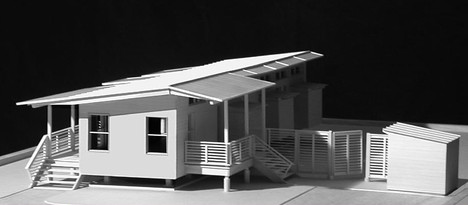I wrote earlier about the US Green Building Council’s LEED AP (Leadership in Energy and Environmental Design Accredited Professional) certification program. LEED is a 4-tier rating system for high-performing buildings that encourages a systemic approach to sustainable design. Historically, most LEED APs were architects, mechanical engineers, and other niche green building professionals. With the demand for green buildings and sustainable design booming, an increasing number of professionals are becoming LEED AP certified (more than 75K and climbing rapidly). For about $650 and a lot of focused studying and serious dedication, you too can become a LEED AP.
George Karayannis
In Vol. I on the subject I described the US Green Building Council’s LEED AP (Accredited Professional) certification program, and my plan to become LEED AP certified to strengthen my sustainability credentials and to help guide the renovation of my historic opera house to LEED Gold status. Well, I just took the LEED AP exam….and passed!
 Despite an economy in a deepening recession, plummeting housing values, tight credit and rising foreclosure rates and unemployment, the United States may be on the cusp of a new housing mini-boom – or rather, a ‘mini-housing’ boom. Of course we first need to stabilize the economy and create millions of new jobs rebuilding our nation’s energy and public transportation infrastructure, but that’s an issue for another discussion.
Despite an economy in a deepening recession, plummeting housing values, tight credit and rising foreclosure rates and unemployment, the United States may be on the cusp of a new housing mini-boom – or rather, a ‘mini-housing’ boom. Of course we first need to stabilize the economy and create millions of new jobs rebuilding our nation’s energy and public transportation infrastructure, but that’s an issue for another discussion.
State of US Housing Stock
Consumers, when they are once again able to afford a new home, are likely to embrace a new generation of homes that are smaller, sustainable, modular and less costly to own and maintain. Researchers at MIT’s Department of Architecture House_n project foresee the next generation of homes as “a center for proactive health care, distributed energy production, commerce and learning.” Sadly, the existing base of homes is ill-suited to meet these needs, and are so poorly insulated that an estimated $16B of energy is lost each year through holes and cracks. House_n researchers add that:
In my first post of this series I described the US Green Building Council’s LEED (Leadership in Energy & Environmental Design) Green Building Rating System, and how individuals looking for a clean tech career should consider LEED AP certification to broaden and document their understanding of sustainability issues, and to stand out among otherwise equally-qualified candidates.
LEED provides sustainable design guidelines and a point-based rating system for various compliance levels including Certified, Silver, Gold and Platinum. With demand soaring for LEED-based solutions, a growing market opportunity clearly exists for individuals who can help design, build, commission and operate resource-efficient facilities and communities. Only you can determine if LEED AP certification is in your best interest or relevant for a clean tech career. But I can attest to thinking more broadly about RE, EE, environmental and worker productivity issues having started this journey.
Nov. 4th was a great day for progressives as well as community-based energy solutions. Little-noticed ballot Issue 1A in Boulder County, CO, passed by nearly 2:1, marking an historic milestone in the United States’ quest for energy independence/security. Ballot 1A approved $40M in local EE/RE bonds for local residents and businesses who wish to invest in energy efficiency or green energy generation, and is similar to Berkeley’s $80M solar roof bond program. Bonds are paid back on property taxes-and the obligation stays with the home so repayment is assured even if the house is sold.
Welcome to my journey. I am pursuing LEED Professional Accreditation (LEED AP) to increase my sustainability knowledge base, to help guide my restoration of an historic opera house and to improve my chances of landing a green collar job after 20 years in high tech – despite an economy on life support and a sea of job seekers. Anyone interested in cleantech, efficiency, sustainability or the environment can benefit from formal LEED certification as it integrates these critical and frequently separate elements into a practical whole, and enables you to think more systematically about each as well. A LEED AP is generally recognized as an expert in the field of sustainable design and could add significant value to a “cleantech” career. And, perhaps that LEED certification may help you get that coveted green collar job.